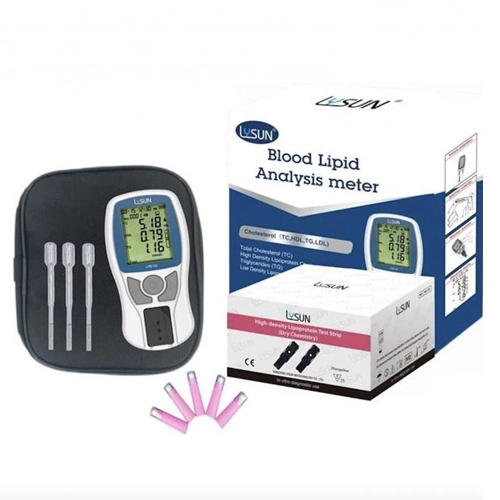
A blood lipid analyzer is a medical device used to measure the levels of various lipids in the blood, such as cholesterol and triglycerides. The process typically involves a small blood sample, usually obtained via a finger prick. The sample is placed on a test strip, which is then inserted into the analyzer. The device uses enzymatic reactions to break down the lipids, producing measurable byproducts. These byproducts are then quantified using optical or electrochemical sensors. The results are displayed on the device’s screen, providing valuable information for diagnosing and managing conditions like hyperlipidemia and cardiovascular diseases.

A blood lipid analyzer is a diagnostic tool used to measure various types of lipids in the blood, which are crucial for assessing cardiovascular health. The primary lipids that can be measured include total cholesterol, high-density lipoprotein (HDL) cholesterol, low-density lipoprotein (LDL) cholesterol, and triglycerides. These measurements help in evaluating the risk of heart disease and other related conditions. Some advanced analyzers may also provide additional metrics such as very-low-density lipoprotein (VLDL) cholesterol and non-HDL cholesterol. Regular monitoring of these lipids is essential for maintaining optimal cardiovascular health and managing conditions like hyperlipidemia.
Technical & Sales Support